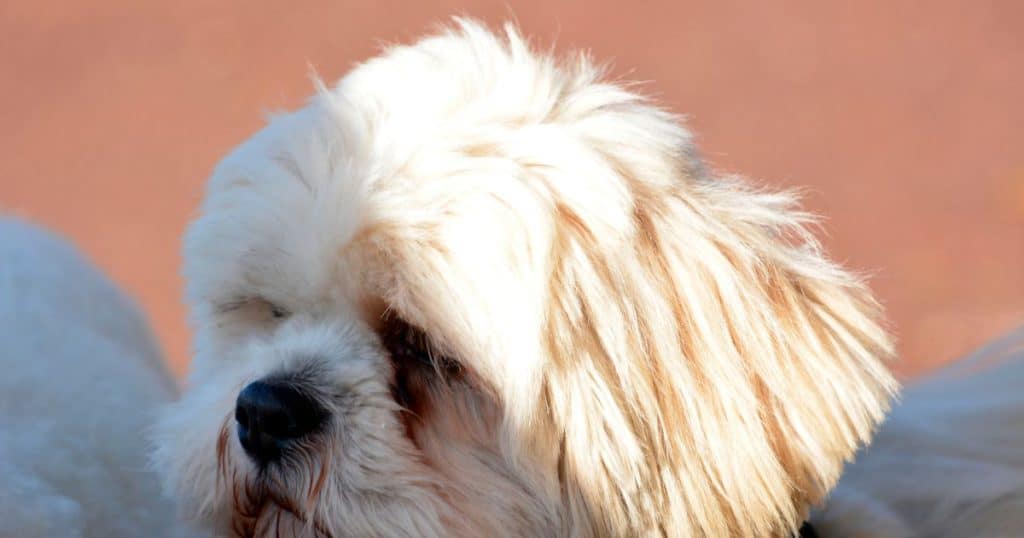What to Know
Bichon Frises are known for their cheerful demeanor, curly white coats, and loving companionship. As pet owners, it’s essential to understand the various health concerns that can impact these little bundles of joy. One question that may be on the minds of Bichon owners is, “What Do Bichon Frise Usually Die From?” This article aims to answer this question and provide some information on how to keep your furry friend as healthy as possible.
These small, affectionate dogs are generally healthy, with a life expectancy of 12-15 years. However, like all breeds, they can be prone to certain health issues that could impact their quality of life, if not managed accordingly. To ensure your Bichon Frise lives a long and fulfilling life, awareness of common health concerns and preventative measures is vital.
Key Takeaways
- Bichon Frises can face various health issues that may lead to premature death.
- Regular veterinary care and recognizing warning signs are crucial for managing health concerns.
- A balanced diet, exercise, and environmental factors play essential roles in elongating a Bichon’s lifespan.
Bichon Frise Overview

As an expert content writer, I have always been fascinated by the world of dogs, and the Bichon Frise breed has been no stranger to my radar. The Bichon Frise (or Bichons, as they are also known) is a small breed of dog that is known for its cheerful, energetic, and playful nature. They are also an affectionate breed, making them a popular choice for families looking for a furry companion.
Bichon Frise has a rich history, with its roots tracing back to the Mediterranean area, where it is believed to have originated from the Mediterranean Barbet dog. Over time, the breed has evolved and spread to various parts of Europe, including France, Spain, and Italy. It has been a symbol of nobility and luxury for many years, appearing in several paintings and royal courts. The breed was even known to have been the favorite of King Francis I of France.
In modern times, Bichons have become increasingly popular in dog sports such as agility and obedience training. Their small size and highly trainable nature make them an excellent choice for these types of activities. They are also known for their hypoallergenic coats, making them a preferred breed for people who suffer from allergies.
However, as with any breed, Bichon Frise can have their fair share of health issues. There are various ailments and factors that can influence the lifespan and overall well-being of these dogs. One of the main factors to consider is canine cutaneous epitheliotropic T-cell lymphoma, which a review of 30 cases highlighted as being an issue in the breed.
In conclusion, the Bichon Frise is a delightful and appealing breed of dog that has captured the hearts of many dog lovers across the world. Their cheerful and affectionate demeanor, combined with their agility, obedience aptitude, and sensitive nature, makes them a popular choice across many households. However, it is essential to be aware of potential health issues and provide the necessary care to ensure a long and healthy life for these furry companions. As someone who loves sharing insights about various dog breeds, it has been my pleasure to discuss the remarkable Bichon Frise with you, and I hope that this information contributes to a greater understanding and appreciation of these lovable dogs.
Common Health Concerns in Bichon Frise

As an expert content writer in the bichon frise niche, I’ve come across various health concerns that affect this breed. While they are generally healthy dogs, Bichon Frise can suffer from health issues like any other breed. In this section, I will cover some of the most common health conditions that Bichon Frise usually face.
One of the most prevalent health issues in Bichon Frise is allergies. Allergies can manifest in various ways, such as skin irritations, itching, or gastrointestinal problems. It’s essential to monitor your Bichon Frise for signs of allergies and consult with a veterinarian if you notice any symptoms.
Eye problems are also common in Bichon Frise, including cataracts and progressive retinal atrophy (PRA). Both conditions can lead to vision loss if left untreated. Regular check-ups with your veterinarian can help detect these issues early and provide the appropriate treatment.
Cancer is another concern for Bichon Frise owners, with lymphoma and mast cell tumors being typically common types. Early detection and treatment are crucial to increase the chances of a successful outcome. Regular veterinarian check-ups can help detect any abnormal growths or other signs of cancer.
Respiratory diseases, such as pneumonia and bronchitis, can occur in Bichon Frise due to their short snouts and crowded airways. These conditions can be life-threatening if not treated promptly. It’s crucial to monitor your dog for symptoms like coughing or trouble breathing and seek veterinary care if needed.
In addition to these, Bichon Frise may also suffer from gastric torsion, hypothyroidism, diabetes, kidney disease, valve disease, and liver shunts. Regular blood work and health screenings can help detect these conditions early, enabling prompt treatment.
Ear infections are prevalent in Bichon Frise due to their floppy ears, which can trap moisture and bacteria. Cleaning their ears regularly can help prevent infections and maintain overall ear health.
Lastly, patellar luxation is a common orthopedic issue in Bichon Frise. This condition occurs when the kneecap slips out of place, causing pain and limping. Surgery may be necessary in severe cases to restore normal function and alleviate discomfort.
As a Bichon Frise owner, it’s essential to be aware of these common health concerns and provide the necessary care to ensure your furry friend lives a long and healthy life. Regular visits to your veterinarian, a balanced diet, and proper exercise can help maintain overall health and prevent many of these conditions.
What Do Bichon Frise Usually Die From? Major Causes

As a Bichon Frise owner, it is essential to be aware of some of the common health issues that this breed may face. In this section, I will discuss the major causes of death in Bichon Frise, which include heart disease, cancer, and liver disease.
Heart disease is a notable concern for Bichon Frise dogs, as they have a predisposition to various cardiac issues such as congestive heart failure and cardiomyopathy. Congestive heart failure occurs when the heart is unable to pump blood efficiently, leading to a buildup of fluid in the lungs and other parts of the body. Cardiomyopathy, on the other hand, is a disease that affects the heart muscle, making it difficult for the heart to contract and pump blood effectively. Both of these conditions can be life-threatening if not detected and treated early.
Cancer is another major cause of death for Bichon Frise dogs. Tumors are among the most common causes of death in this breed, with some of the prevalent cancer types being hemangiosarcoma, lymphoma, and mammary tumors. Early detection and treatment are critical, as the prognosis for advanced cancer cases is often poor.
Liver disease is also a concern for Bichon Frise dogs. The liver plays a vital role in detoxifying the body and metabolizing nutrients, but when it becomes compromised, it can lead to various health issues and, ultimately, liver failure. In some cases, liver disease may be caused by congenital conditions, while in others, it may result from infections, toxins, or other factors. It is crucial to provide your Bichon Frise with proper nutrition and regular veterinary care to prevent and detect liver issues early on.
In conclusion, as a Bichon Frise owner, being well-informed about the health risks and major causes of death in this breed is essential for ensuring your dog leads a long and healthy life. By providing proper care, regular veterinary check-ups, and monitoring for signs of potential health issues, you can help protect your beloved companion from these common causes of death.
Recognizing Warning Signs

As a Bichon Frise owner, it is essential to know the warning signs of health issues that may affect your furry friend. Paying attention to symptoms such as weight loss, lethargy, difficulty breathing, hair loss, and bladder stones can help you identify potential problems and seek timely veterinary care.
One common warning sign to watch for is a sudden or unexplained change in your dog’s weight. If your Bichon Frise experiences weight loss without a change in diet or exercise, it may indicate an underlying health problem. Similarly, a decrease in your dog’s energy levels or lethargy might signal an issue that needs attention. Always consult your veterinarian if you notice these signs.
Difficulty breathing is another warning sign that you should not ignore. Breathing problems could be the result of a respiratory infection or a more severe condition such as heart disease. If your dog shows signs of labored breathing, persistent coughing, or wheezing, it’s time for a visit to the vet.
When it comes to hair loss, Bichon Frises are known for their beautiful, fluffy coats. However, if you notice unusual hair loss or thinning, it may signify an underlying skin condition, hormonal imbalance, or allergy. It’s essential to consult a veterinarian for a proper diagnosis and appropriate treatment.
Bladder stones are a common health issue for Bichon Frises, so keep an eye out for any changes in your dog’s urination habits. Symptoms of bladder stones may include straining to urinate, blood in the urine, or frequent urination. Contact your veterinarian right away if you observe any of these signs.
Changes in appetite and thirst can also be warning signs of health problems. An increase or decrease in appetite, coupled with excessive thirst, could indicate diabetes or kidney disease. If you notice these changes in your Bichon Frise, consult your veterinarian for a thorough assessment.
Sneezing and nasal discharge could be indicators of respiratory infections or allergies. Pay close attention to your dog’s sneezing habits and seek veterinary advice if symptoms persist or worsen.
Lastly, noticing changes in your dog’s vision such as squinting, cloudiness, or bumping into objects can be an early sign of blindness or eye issues. Consult your veterinarian if you suspect vision problems, as early detection and intervention can help preserve your dog’s sight.
Remember, you know your Bichon Frise best. By recognizing the warning signs mentioned above, you can help ensure their health and happiness. Always consult your veterinarian for guidance when it comes to your dog’s well-being.
Preventative Measures and Veterinary Care

I strive to ensure that my dog has a happy and healthy life. One of the key aspects of that responsibility involves knowing the potential health issues that my dog might face and taking preventative measures to avoid them. Bichon Frises are generally healthy dogs; however, they can suffer from some breed-specific conditions, such as mitral valve disease and aortic stenosis. In this section, I will focus on the importance of regular veterinary care, dental care, and other preventative measures for Bichon Frises.
Regular visits to your veterinarian should be a top priority for your Bichon Frise. These visits usually involve a thorough physical examination, vaccination updates, and the opportunity to discuss any health concerns with your veterinarian. Vaccinations protect your dog from various diseases, such as distemper, hepatitis, and rabies. Timely and appropriate vaccinations play a crucial role in maintaining your dog’s well-being and ensuring a longer, healthier life.
Dental care is another essential aspect of maintaining your Bichon Frise’s health. This breed is prone to dental issues, such as periodontal disease and tartar buildup, which can lead to tooth loss and other serious health complications. Regular teeth brushing, dental chews, and annual dental check-ups from your veterinarian are all critical components of preventative dental care.
When it comes to specific health concerns, such as mitral valve disease and aortic stenosis, early detection is key. Mitral valve disease, a heart condition, can be difficult to detect during routine physical exams, so your veterinarian may recommend additional tests, like chest X-rays or an echocardiogram. Similarly, aortic stenosis is a congenital heart defect that requires regular monitoring and, in some cases, medication or surgery for treatment. Staying on top of these potential health issues is crucial for your dog’s well-being.
Maintaining a close relationship with your veterinarian and scheduling regular visits can help you catch and address health issues early on before they become severe. This care, combined with consistent dental maintenance and awareness of breed-specific concerns, will contribute to a long and healthy life for your Bichon Frise.
Managing Health through Nutrition and Exercise

I cannot stress enough the importance of proper nutrition and exercise in managing the health of our beloved pets. The average lifespan of a bichon frise is 12-15 years, but with a well-balanced diet and regular exercise, we can help them avoid many common health issues and live a long, healthy life.
To begin with, proper nutrition is key to maintaining the overall health of a bichon frise. A healthy diet for a bichon frise should consist of high-quality food that meets their specific needs. It’s important to ensure that their diet is balanced, providing all the necessary nutrients, vitamins, and minerals for them to thrive. Obesity can be a major concern for bichon frise, as it can lead to numerous health problems like diabetes, heart disease, and joint issues. By managing their weight through a proper diet, you can help your bichon frise live a healthier and longer life.
In addition to a balanced diet, regular exercise is crucial for the wellbeing of a bichon frise. These dogs are naturally energetic and playful, and they need physical activity to keep them physically and mentally stimulated. Regular walks and playtime can provide both cardiovascular and cerebral stimulation for your bichon frise, keeping them engaged and happy. It is important to note that bichon frise may be prone to certain joint and bone issues, so it’s essential to tailor the exercise routine to their specific needs and limitations.
Moreover, maintaining a close bond and paying attention to your bichon frise’s needs is vital in ensuring their optimal health. By closely monitoring their behavior, appetite, and energy levels, you can detect any potential health issues early on and consult with a veterinarian to address them promptly. Regular veterinary check-ups are also essential in catching any underlying health problems and providing timely treatment.
In summary, combining proper nutrition, regular exercise, and attentive care is crucial for managing the health of a bichon frise. By doing so, we can help our furry friends avoid many common health issues and live a long, fulfilling life.
Aging and Life Expectancy

As an expert in the realm of Bichon Frise dogs, I understand that many dog owners are concerned about the life expectancy and common health issues of their beloved pets. In this section, I will discuss the life expectancy of the Bichon Frise, factors that contribute to their aging, and common causes of death for this breed.
The Bichon Frise is a small breed dog with an average life span of around 12-15 years. This life expectancy is similar to other small breed dogs, and with proper care and attention, some Bichons may even live more than 16 years. While the breed generally enjoys a fairly robust lifespan, it is important to bear in mind that as a Bichon Frise grows older, they may experience age-related issues that can impact their overall health and life span.
One of the factors that can contribute to an aging Bichon Frise’s well-being is their weight. It’s crucial to keep a Bichon Frise at a healthy weight level throughout their life, as obesity can exacerbate any existing health issues, particularly in their senior years. Regular check-ups at the veterinarian, along with a balanced diet and exercise routine, can help maintain your Bichon Frise’s overall health as they age.
Now, let’s delve deeper into the question of what do Bichon Frise usually die from. Two of the most common health issues in Bichon Frise are allergies and leg problems. Allergies can manifest as skin irritations, which may lead to infections if not cared for properly. Leg issues, such as luxating patella, may require surgery or ongoing treatment as the dog ages. However, these issues are not always life-threatening and can often be managed with proper care.
Another health concern for Bichon Frise is the development of heart diseases, particularly mitral valve disease, which affects a significant portion of the breed. This condition can lead to heart failure and has been known to cause death in some cases. The risk of developing heart issues can increase as a Bichon Frise gets older, so it is essential to maintain a regular schedule of veterinary appointments and heart examinations for aging dogs.
In summary, the life expectancy of a Bichon Frise is influenced by factors such as genetics, care, and overall health. While heart disease is a common cause of death in this breed, attentive pet owners can take steps to manage their dog’s overall health as they age. Regular veterinary care, a healthy diet, and an appropriate exercise routine can contribute to a longer, happier life for your Bichon Frise.
Importance of Selecting a Reputable Breeder

As an owner or potential owner of a Bichon Frise, I understand the importance of selecting a reputable breeder to ensure the health and well-being of my furry companion. Reputable breeders are knowledgeable about the breed’s health and temperament, and they take necessary precautions to reduce the risk of genetic health issues. Bichon Frise dogs, like any breed, may have some health concerns that can be minimized through responsible breeding practices.
One reason why it’s crucial to choose a reputable breeder is that they perform health screenings on their breeding dogs. These screenings help identify and eliminate common health issues that Bichon Frises may suffer from, such as hip dysplasia, heart disorders, or eye problems. By only breeding dogs without these problems, reputable breeders can significantly reduce the risk of these conditions being passed on to the puppies.
In addition, reputable breeders prioritize the wellbeing of their dogs and puppies. They ensure a clean and safe environment, proper socialization, and up-to-date vaccinations and medical care. This care is essential for the long-term health and happiness of the Bichon Frise puppies. Furthermore, reputable breeders are committed to the breed’s improvement and take the time to research lineage, temperament, and health, ensuring their puppies are the best examples of the breed.
A clear sign of a reputable breeder is their willingness to provide references, pedigree information, and copies of health certifications. They will also be happy to show you their dogs and breeding facilities and answer any questions you may have about the breed, puppy care, and potential health concerns.
To find a reputable Bichon Frise breeder, it’s best to consult breed-specific clubs and organizations, as they typically maintain a list of responsible breeders who adhere to strict standards. Additionally, attending dog shows and events can be a great way to connect with knowledgeable breeders and gain insight into their breeding programs.
In short, selecting a reputable breeder plays an essential role in ensuring your Bichon Frise has the best chance at a long, healthy, and happy life. A responsible breeder will have the knowledge and experience necessary to help you navigate any potential health issues and provide invaluable support throughout your dog’s life. As someone who loves my Bichon Frise, I understand the importance of this decision and want to ensure others are equally mindful when choosing where to get their precious furry friend.
Role of Environmental Factors
As a Bichon Frise owner, I constantly strive to understand the factors that could impact the health of my furry companion. One area of concern is the role of environmental factors and toxins that may contribute to the health issues Bichon Frises often face. As such, it’s important for me as a pet owner to be informed of potential risks and to take necessary precautions to keep my four-legged friend healthy and safe.
To begin, it’s essential to be aware that Bichon Frises, like all dogs, can be sensitive to certain environmental factors, such as allergens, temperature extremes, and air pollution. For instance, I’ve observed that my Bichon Frise has a tendency to develop skin issues when exposed to high pollen counts or when the air quality is poor. Therefore, I make sure to check the local air quality index and pollen counts and adjust our daily walks and activities accordingly, giving indoor playtime preference during high-risk days.
Another significant environmental factor to consider is the risk of heat-related illnesses, particularly during the warmer seasons. A study conducted on dogs in the UK found that environmental heat-related illness can pose a severe threat to our canine companions if they are not properly protected from intense heat and humidity. As a proactive measure, I ensure that my Bichon Frise always has access to fresh water and a cool place to rest during hot days. Limiting outdoor activities during the hottest hours and providing adequate shade when outside can also help prevent heatstroke.
In my experience, toxins can also be a significant threat to my Bichon Frise’s well-being. Household cleaning products, pesticides, and insecticides can be dangerous if ingested or even if they come into contact with their skin. Consequently, I am extra cautious when using such products, always keeping them out of my dog’s reach and ensuring proper ventilation when applying chemicals indoors.
Similarly, plants in and around my home can also be a source of toxins. Some common plants and flowers, such as lilies, azaleas, and sago palm, can be toxic to dogs if ingested. Being mindful of the types of flora in my garden or even the bouquets I bring into my home is essential to minimize the risk of accidental poisoning.
In conclusion, as a Bichon Frise owner, it’s my responsibility to understand the environmental factors and toxins that could negatively impact my dog’s health and well-being. By staying informed and taking the appropriate precautions, I can keep my beloved pet safe and sound, cherishing each day we spend together.
Unavoidable Events and Accidents

It’s essential to understand the potential risks and health issues that these adorable dogs might face. Even though they are generally healthy, there are certain unavoidable events and accidents that could pose a threat to their lives.
One common cause of injury in Bichon Frises is their natural enthusiasm and curiosity, which sometimes leads them to explore risky areas. For instance, they may jump off high surfaces or run across a busy road without realizing the danger. This can lead to accidents that cause injuries or even death. As a responsible owner, it’s essential to keep an eye on your Bichon Frise when they are outside and ensure they are safely contained within your yard or on a leash.
Apart from physical injuries, Bichon Frises can also suffer from various health issues that may affect their lifespan. Some of these issues could be congenital or develop as they age, such as heart disease or kidney disease. Regular vet check-ups are crucial for early detection and management of these conditions. Additionally, their big, dark eyes make them prone to ocular problems, which can lead to impaired vision or even blindness if left untreated.
Another concern for Bichon Frise owners is the risk of cancer, which is sadly a leading cause of death among dogs. While there is no way to predict whether a dog will develop cancer, early detection is key. Monitoring your Bichon Frise for any unusual lumps, bumps, or changes in behavior will help you to act quickly in case of any issues.
I must also mention that Bichon Frises can have an increased risk of dental issues due to their small mouths, which can accommodate more teeth than usual. This leads to overcrowding and a higher risk of plaque build-up, gum disease, and tooth loss. It’s important to maintain good dental hygiene by brushing your Bichon’s teeth regularly and feeding them a proper diet.
It’s inevitable that accidents and injuries can happen in our beloved pets’ lives, but with responsible care and dedication to their well-being, we can minimize these risks. By staying vigilant as a Bichon Frise owner, you can help protect your furry friend and ensure they live a happy, healthy life.
FAQs
What are common health issues in Bichon Frise?
Bichon Frise dogs can suffer from several health issues. Some of the common problems include allergies, patellar luxation, dental issues, and cataracts. Allergies can lead to skin problems and excessive itching. Patellar luxation affects the dog’s kneecaps, causing them to dislocate. Dental issues are also common due to the breed’s small mouth and crowded teeth, making them prone to dental diseases. Cataracts affect the Bichon’s eyes, leading to impaired vision or blindness in severe cases.
What is the life expectancy of a Bichon Frise?
The life expectancy of a Bichon Frise typically ranges from 12 to 15 years. This is relatively long compared to other dog breeds, with proper care and a healthy lifestyle playing a significant role in prolonging their life.
Do Bichon Frise dogs have skin problems?
Yes, Bichon Frise dogs can have skin problems, particularly due to allergies. Allergens such as pollen, dust, or certain food ingredients can trigger allergies in Bichon Frise dogs, leading to skin issues like atopic dermatitis. Symptoms include excessive itching, redness, and inflammation of the skin. Regular grooming and veterinary care can help manage and prevent skin problems in-Bichon Frise dogs.
Are there any breed-specific diseases for Bichon Frise?
Bichon Frise dogs are prone to breed-specific health issues, such as hyperadrenocorticism. This condition, also known as Cushing’s disease, affects the adrenal glands’ functioning, causing an excessive production of cortisol. It can result in a variety of symptoms, including increased thirst, increased appetite, and hair loss. Treatment options depend on the specific cause of the condition, which can be determined through diagnostic tests and veterinary consultation.
What factors influence a Bichon Frise’s lifespan?
Several factors influence a Bichon Frise’s lifespan, including genetics, diet, lifestyle, and overall health. Bichon Frise dogs that come from a healthy genetic lineage with no known inheritable health issues are more likely to have a longer lifespan. A well-balanced diet, regular exercise, and overall proper care can help maintain their health, contributing to a longer lifespan. Regular veterinary check-ups can catch any developing health issues early, increasing the likelihood of successful treatment and prolonging the dog’s life.
How to prevent health problems in Bichon Frise?
To prevent health problems in Bichon Frise dogs, it’s essential to maintain a healthy lifestyle that includes a balanced diet, regular exercise, and grooming. It’s also crucial to keep them up to date with vaccinations and parasite prevention measures. Regular veterinary check-ups can help identify potential health issues early, allowing for prompt intervention and treatment. Additionally, selecting a Bichon Frise from a reputable breeder can help minimize the risk of genetically-linked health issues.

